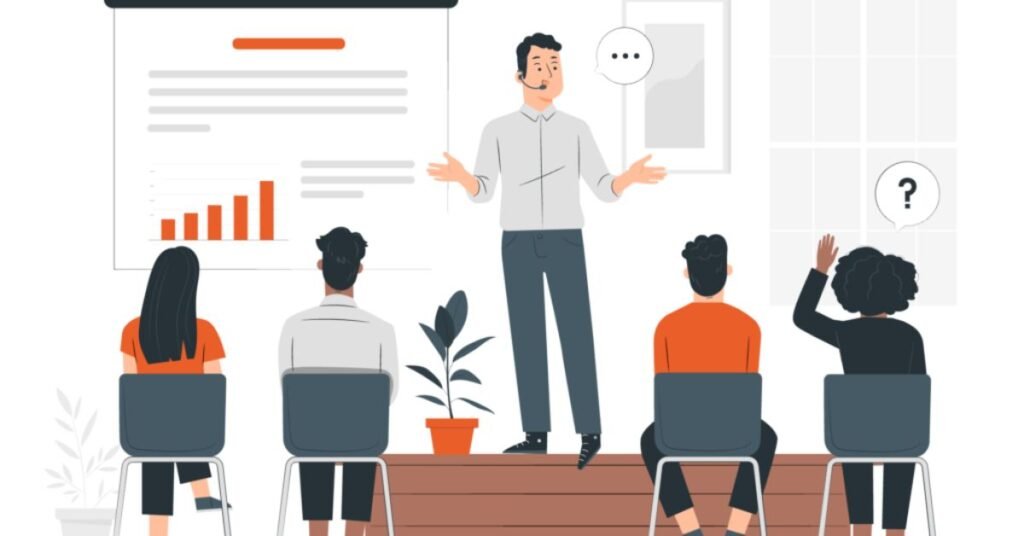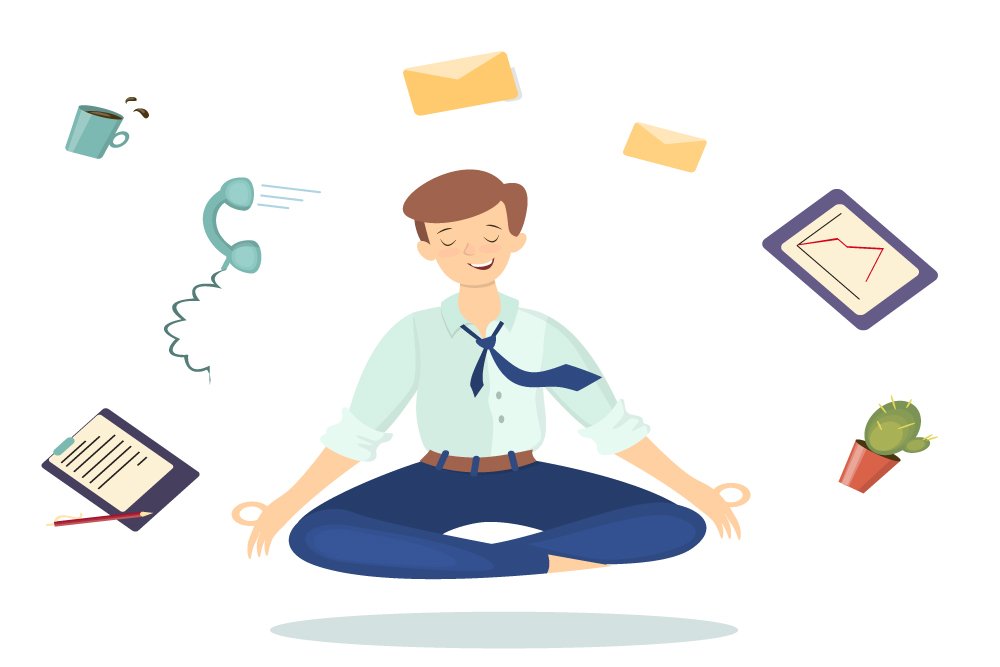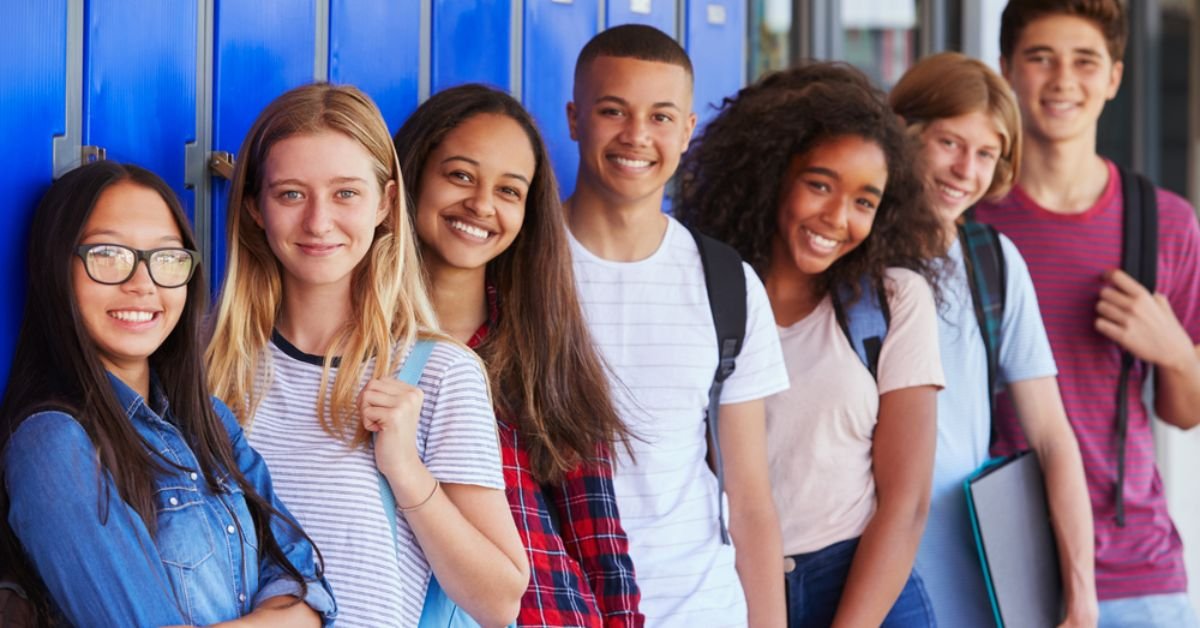Youth mental health is one of the most urgent public health challenges of our time. Across the globe, young people face increasing pressures academic stress, peer expectations, social media comparisons, family issues, and economic uncertainty. As a result, rates of anxiety, depression, and self-harm among teenagers and young adults are rising faster than ever.
Yet, despite these alarming trends, many young people do not receive the help they need. Stigma, lack of awareness, and limited access to mental health professionals often delay treatment until problems become severe.
This is where Youth Mental Health First Aid (YMHFA) comes in. Much like traditional first aid equips people to respond to physical injuries, YMHFA empowers individuals parents, teachers, peers, and community members to recognize early warning signs of mental health issues and provide initial support. It bridges the gap between noticing a problem and accessing professional care.
This article provides a complete, in-depth guide to YMHFA what it is, how it works, its benefits, limitations, and why it is crucial for today’s youth.
Prevalence of Youth Mental Health Challenges
The World Health Organization (WHO) estimates that 1 in 7 adolescents experiences a mental disorder. Anxiety and depression are the most common, but other conditions like ADHD, eating disorders, and substance misuse are also widespread.
Why Youth Are More Vulnerable
Adolescence is a transitional stage filled with biological, emotional, and social changes. Teens and young adults may struggle with:
- Academic stress and performance pressure.
- Social media comparisons and cyberbullying.
- Identity formation, including sexual orientation and gender identity.
- Family conflicts or instability.
- Peer pressure related to drugs, alcohol, or risky behavior.
These factors can amplify mental health struggles, and without proper support, issues can escalate quickly.
The Role of Stigma
Stigma prevents many young people from seeking help. They may fear being labeled as “weak,” “crazy,” or “attention-seeking.” YMHFA plays a vital role in breaking down this stigma by fostering understanding and empathy.
What is Youth Mental Health First Aid (YMHFA)?
1. Definition and Origins
Youth Mental Health First Aid is a training program designed to teach adults how to identify, understand, and respond to signs of mental health challenges in young people aged 12–25. It originated in Australia in 2000 and has since spread to more than 25 countries.
2. How YMHFA Differs from Traditional First Aid
While physical first aid focuses on treating injuries, YMHFA focuses on:
- Recognizing behavioral and emotional changes.
- Providing comfort and reassurance.
- Encouraging professional help when needed.
- Supporting youth in crisis until help is available.
3. Who Should Learn YMHFA?
Anyone who interacts with young people can benefit, including:
- Parents and guardians.
- Teachers and school staff.
- Coaches and mentors.
- Youth workers and community leaders.
- Even teens themselves, through adapted peer-support versions.
Core Principles of Youth Mental Health First Aid (YMHFA)

At its foundation, Youth Mental Health First Aid (YMHFA) is guided by a set of core principles designed to provide effective, compassionate, and practical support to young people facing mental health challenges. These principles ensure that even without professional training, adults can make a meaningful difference.
1. Non-Judgmental Listening
One of the most powerful tools is simply listening. Creating a safe and non-critical environment allows young people to share openly about their struggles. Instead of rushing to provide solutions, the focus is on validating feelings, showing empathy, and building trust.
2. Respect for Confidentiality
Confidentiality is essential for maintaining trust. While privacy should be respected, it must be balanced with safety especially if the young person is at risk of harm. YMHFA training equips adults to handle this delicate balance responsibly.
3. De-Escalation Skills
In moments of crisis, remaining calm and composed can help prevent escalation. De-escalation involves using a gentle tone, maintaining patience, and avoiding confrontational language, which reassures young people that they are safe and supported.
4. Encouraging Professional Help
While YMHFA provides immediate support, it emphasizes the importance of connecting youth with professional resources such as counselors, therapists, or doctors. Encouragement can make it easier for young people to take that crucial next step toward recovery.
5. Promoting Resilience
Beyond addressing immediate challenges, YMHFA encourages building long-term resilience. This includes teaching self-care strategies, promoting healthy habits, and fostering supportive peer and family connections that strengthen overall well-being.
Together, these principles create a framework of empathy, safety, and empowerment. They equip parents, teachers, and community members to provide effective first-line support bridging the gap between recognizing a problem and accessing professional care.
Signs and Symptoms of Mental Health Challenges in Youth
Recognizing early warning signs is critical. Here are common indicators:
1. Depression
- Persistent sadness or irritability.
- Loss of interest in activities once enjoyed.
- Withdrawal from friends and family.
- Changes in appetite or sleep.
2. Anxiety
- Excessive worry or fear.
- Restlessness or difficulty concentrating.
- Physical symptoms like sweating, headaches, or stomach aches.
3. Substance Misuse
- Increased secrecy.
- Decline in school performance.
- Sudden changes in behavior or peer group.
4. Eating Disorders
- Obsession with body image or weight.
- Restrictive eating or binge eating.
- Frequent trips to the bathroom after meals.
5. Self-Harm and Suicidal Thoughts
- Unexplained injuries or scars.
- Talking about hopelessness or death.
- Giving away possessions or saying goodbye.
It’s important to differentiate between normal adolescent mood swings and signs of a deeper issue. YMHFA training helps adults make this distinction.
The YMHFA Action Plan (ALGEE)
The foundation of YMHFA is the ALGEE model, a 5-step action plan:
- Assess for risk of harm or suicide.
- Ask directly if the young person is considering suicide.
- Ensure immediate safety.
- Listen non-judgmentally.
- Show empathy and patience.
- Avoid interrupting or minimizing their feelings.
- Give reassurance and information.
- Provide hope and reduce stigma.
- Share accurate, age-appropriate information.
- Encourage professional help.
- Suggest counseling, therapy, or medical evaluation.
- Offer to help connect them with resources.
- Encourage self-help and support strategies.
- Promote healthy lifestyle habits.
- Encourage peer and family support.
This structured approach gives confidence to those who want to help but don’t know how.
How YMHFA Training Works?

Youth Mental Health First Aid (YMHFA) is a structured training program designed to equip adults with the skills, knowledge, and confidence to support young people experiencing mental health challenges. Much like physical first aid, YMHFA teaches practical strategies to respond to crises, provide initial help, and guide youth toward professional resources. The training is interactive, evidence-based, and tailored to address the unique needs of adolescents and young adults.
1. Program Structure and Duration
Typically, YMHFA is delivered as an 8-hour course, which may be offered in a single day or split into shorter sessions. The course combines lectures, multimedia presentations, group discussions, and scenario-based exercises to ensure participants not only understand mental health concepts but also learn to apply them in real-life situations. Some programs offer extended modules for teachers, parents, and healthcare professionals who want deeper insights.
2. Key Learning Components
YMHFA training covers several essential topics:
- Understanding mental health conditions: Depression, anxiety, ADHD, eating disorders, substance misuse, and suicidal ideation.
- Recognizing warning signs: Early indicators that a young person may be struggling.
- Crisis intervention techniques: How to respond calmly and effectively in high-stress situations.
- Communication strategies: Active listening, empathy, and non-judgmental support.
- Referral skills: Guiding youth toward appropriate professional help and community resources.
3. The ALGEE Action Plan
A central feature of YMHFA training is the ALGEE action plan, which provides a clear step-by-step approach to assisting youth:
- Assess for risk of harm or suicide
- Listen non-judgmentally
- Give reassurance and information
- Encourage professional help
- Encourage self-help and other support strategies
Through guided role-playing exercises, participants practice applying ALGEE, making the skills more intuitive and easier to recall during real-world situations.
4. Interactive and Scenario-Based Learning
One of the strengths of YMHFA is its emphasis on practical learning. Participants engage in realistic scenarios, such as responding to a student showing signs of anxiety before an exam or a teen exhibiting self-harm behaviors. These exercises improve confidence, reduce hesitation, and teach critical thinking under pressure.
5. Certification and Renewal
Upon completing the course, participants receive a YMHFA certificate, usually valid for three years. Many programs recommend refresher courses to stay current with best practices, new research, and updated mental health resources.
6. Accessibility and Flexibility
YMHFA training is available in-person, online, or in hybrid formats, making it accessible to parents, teachers, coaches, and community members regardless of location. Some organizations also provide scholarships or subsidized programs to increase participation.
7. Benefits of Training
Completing YMHFA equips participants with:
- Greater awareness of youth mental health issues.
- Practical tools to intervene early.
- Confidence in supporting young people during crises.
- Skills to foster a safer, more supportive environment in schools, homes, and communities.
By learning YMHFA, adults become proactive allies in promoting youth mental well-being, bridging the gap between noticing a problem and connecting young people with professional care.
The Role of Schools and Communities
1. Schools as Frontline Support
Since students spend much of their time in school, teachers and staff are often the first to notice changes. Schools adopting YMHFA can:
- Train educators to spot early warning signs.
- Establish safe spaces for mental health discussions.
- Partner with local mental health organizations.
2. Community Engagement
Communities can host YMHFA workshops, create youth-friendly support services, and reduce stigma through campaigns. Collaboration between schools, healthcare providers, and nonprofits strengthens the safety net for young people.
Benefits of YMHFA

Youth Mental Health First Aid (YMHFA) offers a wide range of benefits for individuals, families, schools, and communities. By equipping adults with the knowledge and skills to recognize and respond to mental health challenges in young people, YMHFA ensures timely support and fosters healthier environments.
1. Early Intervention
One of the most significant benefits of YMHFA is its focus on early identification of mental health issues. Adults trained in YMHFA can spot warning signs of depression, anxiety, substance misuse, or self-harm before problems escalate. Early intervention allows youth to receive professional help sooner, reducing the risk of long-term complications and improving recovery outcomes.
2. Reduced Stigma
YMHFA encourages open, informed conversations about mental health, helping to normalize discussions and reduce stigma. When adults model understanding and acceptance, young people feel safer discussing their struggles. This cultural shift fosters a supportive environment where mental health is viewed as an essential part of overall well-being, not something to be hidden or ashamed of.
3. Empowered Adults
Parents, teachers, coaches, and community members gain confidence and practical skills through YMHFA training. Feeling equipped to respond to a crisis or provide support gives adults a sense of empowerment, ensuring they can make a meaningful difference in the lives of young people without fear or hesitation.
4. Safer Communities
By providing first-line support, YMHFA helps prevent crises before they escalate, leading to safer schools, homes, and neighborhoods. Communities with trained adults are better prepared to support vulnerable youth, reducing incidents of self-harm, substance misuse, or other risk behaviors.
5. Long-Term Impact
Beyond immediate benefits, YMHFA contributes to long-term resilience. Young people learn coping skills, gain access to support networks, and grow up in environments that prioritize mental wellness. This fosters healthier, more resilient future generations, equipped to handle life’s challenges.
Overall, YMHFA creates a proactive framework that strengthens youth mental health, empowers adults, and builds supportive communities.
Limitations and Challenges
YMHFA is not perfect. Challenges include:
- Misconceptions: Some expect it to replace therapy, but it’s only first-line support.
- Training Gaps: Not everyone who needs training has access.
- Cultural Barriers: Mental health views differ across cultures.
- Funding: Scaling programs requires investment.
Acknowledging these challenges is crucial to improving the system.
Youth Voices and Experiences
Case studies highlight YMHFA’s impact:
- A teacher recognizing depression in a student and connecting them to counseling.
- A parent noticing anxiety signs and encouraging therapy before crisis.
- A peer intervening when a friend expressed suicidal thoughts.
These stories show how YMHFA saves lives.
How to Get Involved
- Enroll in Training: Check local providers or online options.
- Advocate in Schools: Request YMHFA training for staff.
- Volunteer: Partner with youth organizations.
- Spread Awareness: Talk openly about mental health at home and in the community.
The Future of Youth Mental Health First Aid
The future looks promising, with:
- Digital Programs: Online courses and apps making training more accessible.
- Integration with Schools: Embedding mental health first aid into curricula.
- AI and Technology: Tools to detect early signs through speech and behavior analysis.
- Policy Support: Governments funding and promoting mental health education.
Conclusion:
Youth Mental Health First Aid is more than a training program it’s a lifeline. By equipping adults and communities with the tools to recognize and respond to mental health challenges, we create safer spaces for young people to thrive.
Mental health issues should never be ignored, especially in adolescence. YMHFA provides the skills to act early, offer comfort, and guide young people toward professional support. While not a replacement for therapy, it is a critical bridge between silence and healing.
The message is clear: Every adult who interacts with young people should consider learning Youth Mental Health First Aid. Together, we can empower a generation to speak openly, seek help, and build resilience.
Must Read:
- Top 10 Brain Foods To Enhance Memory Naturally
- What Causes Short Term Memory Loss in Seniors
- Surge in Mental Health: Key Trends 2025
FAQs:
1. What is Youth Mental Health First Aid and who is it for?
YMHFA is a training program that teaches adults how to support young people experiencing mental health challenges. It is designed for parents, teachers, coaches, and anyone working with youth.
2. How does YMHFA differ from professional therapy?
YMHFA does not replace therapy. Instead, it equips individuals to recognize early signs, provide reassurance, and guide youth toward professional help when needed.
3. What are the main signs of mental health struggles in teens?
Warning signs include withdrawal, changes in mood, poor academic performance, sleep disturbances, and talk of hopelessness or self-harm. YMHFA training helps distinguish between normal stress and serious issues.
4. Can YMHFA really prevent suicide or self-harm?
Yes. By teaching adults how to assess risk, start conversations, and connect youth to crisis services, YMHFA can be lifesaving in situations involving suicidal thoughts or self-harm.
5. How can schools adopt YMHFA programs?
Schools can partner with local mental health organizations, integrate training into teacher development, and create peer-support networks to make mental health support accessible.
6. How long does certification last and is it worth it?
Certification usually lasts three years. It is highly valuable because it equips adults with practical skills to respond to real-world mental health challenges in youth.
7. Are there online YMHFA training options available?
Yes. Many organizations now offer virtual YMHFA courses, making it more accessible for parents, teachers, and community leaders to learn from home.
8. How do parents support their child after training?
Parents can use YMHFA skills to listen empathetically, reduce stigma at home, encourage self-care, and connect their child with professional resources when necessary.

